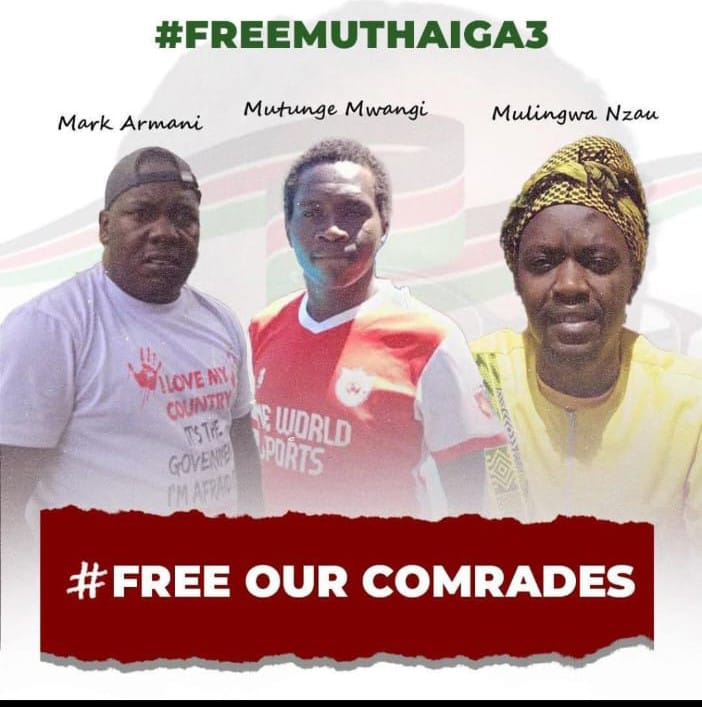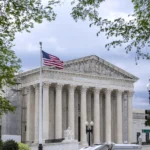Human rights groups in Africa have denounced President William Ruto’s government for what they called “repressive actions, abductions and killings of human rights defenders” in Kenya since the Kenyan protests hit the East African country.
A joint statement by the rights groups warns that civic space is swiftly shrinking and fundamental freedoms are being trampled following the Kenyan protests. The country “seems to be entering a particularly dark period of increased repression, gross abuse of human rights and a rapidly shrinking political and civic space,” said the statement authored by Philip Jakpor of Renevlyn Development Initiative (RDI), Nigeria and Ruth Mumbi, Women Collective Kenya (WCK) among others.
Pan-Atlantic Kompass reports that the stark trajectory began in June 2024, when protests erupted over a finance bill that retained unpopular tax clauses. Young Kenyans mobilized via social media, yet despite parliamentary amendments, the bill passed, sparking nationwide demonstrations. Security forces responded with force, and at least 22 protesters were killed at the gates of the Kenyan Parliament.
Since then, the statement expressed strong concerns that Kenyan security services “have been accused of abducting, torturing and extra-judicially murdering citizens suspected of being the leaders of the anti-government protests.”
According to Kenyan local reports, no fewer than 20 protesters have been killed, with hundreds injured since the Kenyan protests were reignited in June this year.
The most recent incident occurred on June 27, when three prominent human rights defenders: Mark Amani, Mulungwa Nzau and Mutunge Mwangi, were “abducted by security forces while travelling to the coastal city of Mombasa on a routine work trip.” As a bus, they were stopped by officers from the Directorate of Criminal Investigations and taken to a Nairobi police station on accusations, without evidence, of planning riots and looting during the June 25 protests.
On June 30, the trio appeared in court, and prosecutors requested an additional 21 days of detention to “facilitate investigations.” The release strongly condemns this, arguing: “The arrest and prosecution of the trio, without any formal charges, and the attempt by the state to detain them for an extended period is an attempt to silence them and stop them and other Kenyans from exercising their freedom of speech, conscience and association.”
Accotrding to the staetement, all the three defenders are active in grassroots movements like Kongamano La Mageuzi, and extensive photo and video material shows them participating peacefully in protests. The group suggest that the violence and looting were perpetrated not by peaceful demonstrators but by “armed gangs recruited by politicians allied to the ruling party and protected by the police,” citing media exposés which revealed that Kenya Kwanza officials orchestrated violent disruptions to discredit demonstrators.
Rights groups warn that this crackdown is “continuing daily reports of abductions, summons by police and detentions all over the country”, said to be evidence of an authoritarian drift.
They are calling for immediate action, including the “immediate and unconditional release of Mark Amani, Mulungwa Nzau and Mutunge Mwangi,”; A full, independent investigation by the Independent Policing Oversight Authority into police misconduct and collusion with armed gangs; Creation of an independent international commission to probe abductions and murders of bloggers, human rights defenders and activists; and referral to the International Criminal Court for serious crimes committed since the Kenyan protests began.
The appeal was endorsed by Philip Jakpor of RDI, Ruth Mumbi of Women Collective Kenya, Odhiambo Oyoko of FCPG, Aderonke Ige of Help Initiative, Chisom Eze of CAM, Marcela Olivera of Blue Planet Project, Barrister Chima Williams of EDEN, Richard Benin of CODAF, and Florence Ifeanyi-Aneke of NELCCI.





